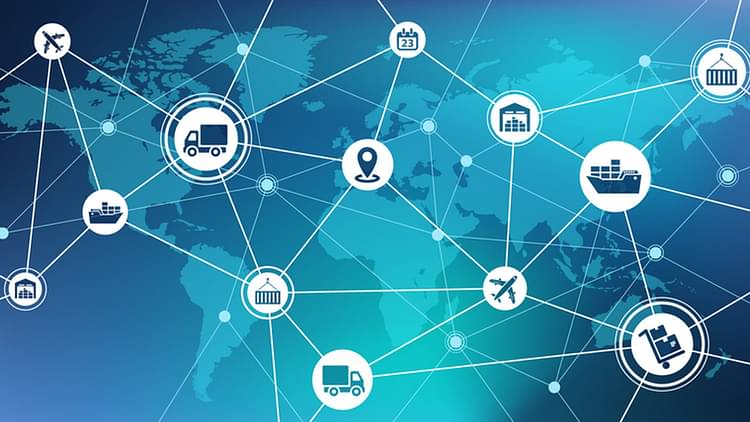The UK government embarked on emergency efforts to rescue the country from supply chain chaos by offering European truckers 5,000 short-term visas. Britain's trucking industry relied on thousands of drivers from the EU, mainly from Central and Eastern Europe, who went home during the pandemic and many haven't been able to get back into a post-Brexit UK. Shortage of truck drivers caused fuel stations across the UK running out of stocks and in turn leading to empty supermarket shelves. Pandemic forced the EU truck drivers to leave UK and Brexit barred their re-entry into UK.
Today, millions of products - cars, washing machines, smartphones, and more - rely on computer chips, also known as semiconductors. And right now, there just aren't enough of them to meet industry demand. Global chip industry is now facing both demand pressures as well as supply constraints. The rise of 5G increased the demand, and the decision by the US to prevent the sale of semiconductors and other technology to Huawei accentuated supply constraints. The US restrictions prohibit foreign semiconductor manufacturers whose operations use the US technology from shipping products to Huawei without first getting a license from the American officials. And these US restrictions caused immense damage to the global supply chains of semiconductor industry.
Disruptions in the supply chain, political strains between the West and China, and the crackdown in Hong Kong, the home of the toy industry, are particularly challenging for the US toy industry, which relies upon China for 86% of its toys. Analysts anticipate global retail prices of toys to increase in the range of 25% during the current year, while supply chain challenges will continue through 2021.
The electronic giant, Apple was expected to make 90 million iPhones in the last quarter of 2021. However, Apple was now having to tell its stakeholders that the total production will be lower by as many as 10 million units in the quarter, reported Bloomberg. Smartphone makers like Apple - one of the biggest chip consumers in the world - has been severely impacted due to semiconductor shortage.
Ikea stores are experiencing product availability disruptions on both sides of the Atlantic, with some product lines out of stock. The ready-to-assemble furniture maker refers to 'supply delays due to COVID-19' as the reason for any product availability disruptions, on its US website. Major ports around the US are struggling with queues of anchored ships and yards of containers piled as high as local fire departments will allow, as per an article published by Bloomberg in September. Typhoons and Covid outbreaks have worsened major congestion in the global supply-chain networks, as container boxes have been lying at ports, railyards and in warehouses from the US to Sudan to China. This has lessons in the ripple effects across global supply chains, showing the limits of diversification as global value networks are closely interdependent.
Food grade CO2 is used for hundreds of products. Agricultural chemicals industry produces CO2 as a by-product of its main product, fertiliser. As some UK fertiliser factories stopped working because of extreme rise in wholesale gas prices, there had been a cut of 60% of the UK's food-grade carbon dioxide supply. The UK poultry and meat producers said that the shortage of carbon dioxide "threatens national food security".
Will these supply shocks prove merely a temporary disruption as the global economy recovers from the impact of the COVID-19 pandemic? Or instead, will we face a meltdown of the global production system? Certain shortages such as those of truck drivers and shipping containers, or gasoline in the United Kingdom directly affect the logistics connecting the links in supply chains. Pandemic ensued border restrictions, distancing requirements and factory closures have all wreaked havoc on traditional supply chains, leading to congestion at ports, delivery delays and soaring freight rates on the main shipping routes between China, the US and Europe. As a result, supply-chain vulnerabilities have rapidly become mutually reinforcing and self-amplifying.
Heavy rains have forced the closures of 60 coal mines in Shanxi province, the largest coal mining hub in China. China’s critical electricity shortage is the result of draconian regulation of coal mining, exacerbated by Beijing's punitive ban on Australian coal imports.
Geopolitics, climate catastrophes and trade wars have also disrupted the global supply chains. The highly specialised and inter-dependent global production system has delivered substantial benefits in the past, but its weaknesses are now clearly visible.
































